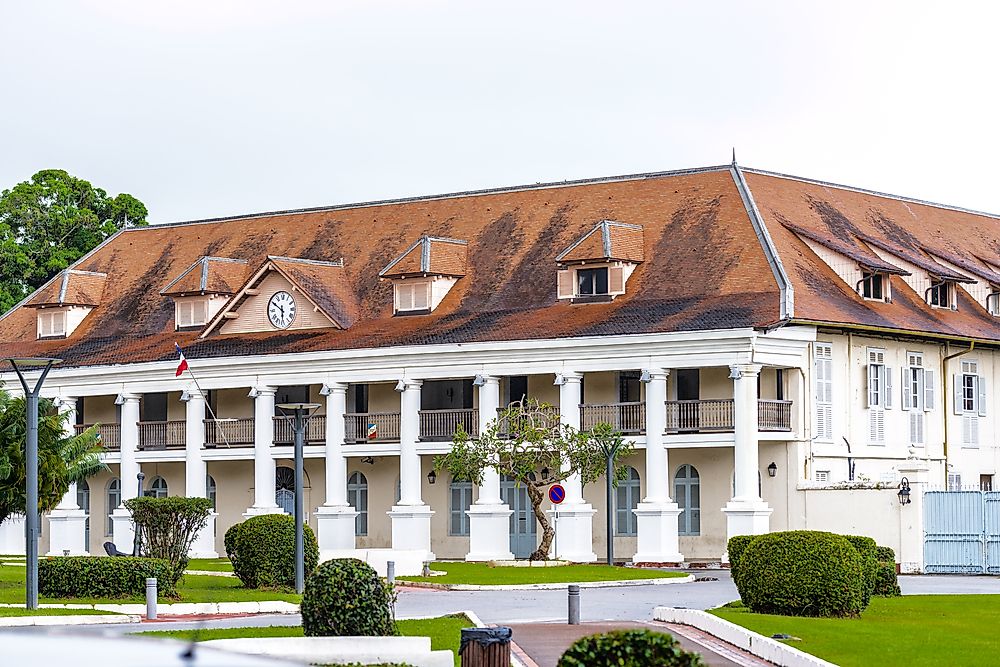

French Guiana is an overseas region and department of France, and it is therefore governed by similar government institutions as those found in French mainland. Cayenne serves as French Guiana’s capital. The first European to dock in French Guiana was Christopher Columbus who found native communities. The Italians initially wanted to occupy the region after which the Dutch and French contested. The early French settlers faced hostility and succumbed to tropical diseases. The arrival of African slaves facilitated the establishment of plantations and triggered the development of French Guiana. The discovery of gold in 1853 created border disputes with Suriname and Brazil which were subsequently settled. The territory was declared an overseas region of France on March 19, 1946, although they have been calls for autonomy. The 2010 referendum saw the citizens voting against independence.
French Guiana’s chief of state is the President of France who appoints a prefect to represent head the region. The prefect resides at the prefecture building situated in Cayenne. The Prefect handles various duties as the representative of the state in the local government. The prefect ensures that police and gendarmerie forces coordinate effectively, handles major crises, and determines emergency defense procedures. The prefect further oversees relief operations and decides when to evacuate zones at risk from natural disasters. He/she is responsible for legal documents including driving licenses, passports, identity cards, and immigration documents.
The General Council is one of French Guiana’s executive bodies. 19 members sit in the institution for six-year terms after being elected by popular vote. The council is headed by a President. A further 31 members are elected to the Regional Council for six-year terms, and it is also headed by a President.
The territory’s politics features the Guianese Socialist Party as the key player, and it maintains close links with the Socialist Party in France. The Guianese Party has 29 seats in the Regional Council and three in the General Council. French Guiana is represented by two elected senators in the French Senate. The current ones are from the Guianese Socialist Party namely Jean-Étienne Antoinette and Georges Patient. Other parties which feature in Guiana’s politics are the Union for a Popular Movement which has seven seats in the Regional Council and three in the General Councils and Walwari which has one member in the General Council and seven in the Regional Council. French Guiana is represented by two deputies in the National Assembly of France.
The government of French Guiana has been trying to deal with the influx of illegal immigrants as well as illicit gold prospectors from Suriname and Brazil. The Maroni River serves as the boundary between Suriname and the territory, and it courses through rainforest making it hard for security forces to patrol. The French government has implemented numerous phases to deal with the problem of illegal mining in the region. Such phases include Operation Anaconda (2003), Operation Harpie (2008), and Operation Harpie Reinforce (2010). These operations prove to be temporarily successful since the end of one operation is followed by the return of Brazilian miners.
Joyce Chepkemoi August 1 2017 in Politics